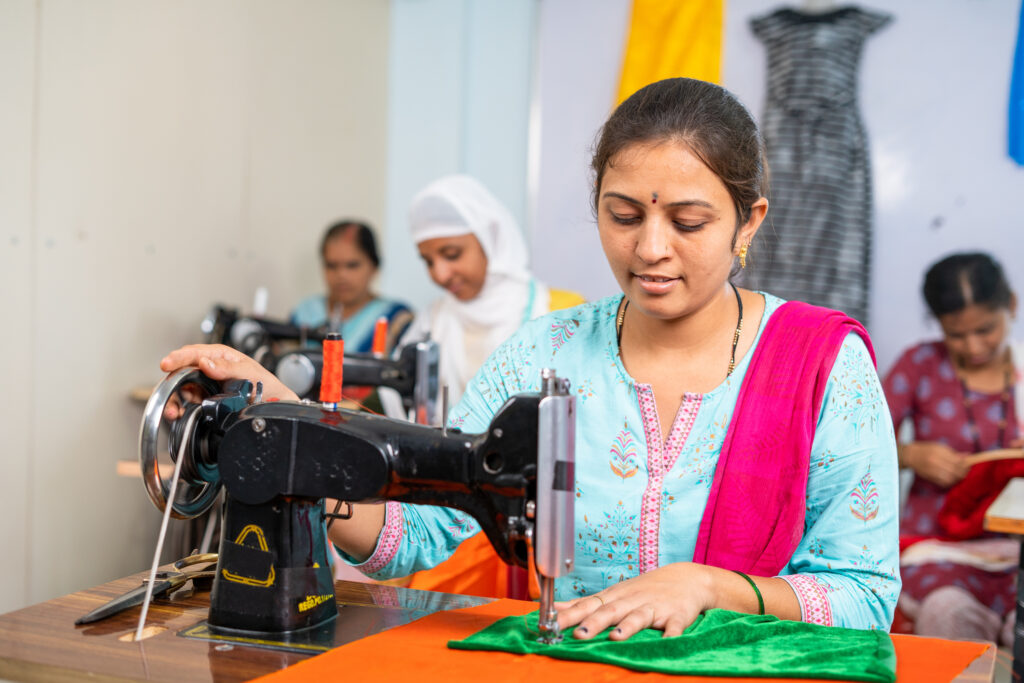
A director’s perspective: increasing flexibility through loan finance
The Independent Cinema Office (ICO) supports cinemas, film festivals and exhibitors of all forms to bring life-changing cinema to more people across the UK. Their mission is to develop an open, challenging and thriving film sector.
With rental increases becoming unsustainable, the ICO decided to purchase a head office property with the help of a £875,000 loan from Charity Bank. Founder and Director Catharine Des Forges explains why this was the right decision for the charity.
Why did you decide to take out a loan?
We’d been operating out of the same site since we began in 2003, and every five years we would have to renegotiate the lease and the rent would go up. Eventually, the rent increased to the point where I realised it would cost us the same to pay off a loan to buy somewhere – but at least we’d have an asset. So we decided it was the right time for us to invest in purchasing our own property. We’d managed to save up some money and then sought out a loan for the rest.
How did you weigh up the risks and benefits of taking out a loan?
For us, the potential benefits far outweighed the risks. We chose the property carefully, somewhere in the London Bridge area where the value should increase and that also works for us operationally. In terms of repaying the loan, that’s money that I would have had to raise each year to pay the rent anyway – but now it’s being invested in the future of the charity.
Why did you choose Charity Bank for your loan?
We talked to five or six lenders. None was able to lend us the full amount required, but Charity Bank was the one that came prepared with ideas of how we could get the additional funds. They talked about everything openly and honestly and were so proactive and positive. It was thanks to them we eventually got the second loan from Big Issue Invest that was instrumental in us being able to buy.
Was it difficult managing two different loans simultaneously?
It was actually really easy. Mainly because Charity Bank took care of all the introductions and managing the relationship with Big Issue Invest. They’d worked together before on other projects and obviously had a great working relationship. I imagine it wouldn’t be so straightforward if you had to independently find two different lenders.
How did you find the process of applying for a loan?
It was hard and there was a lot of work involved. And that’s where having two different lenders was perhaps more complex because you’re dealing with two different sets of lawyers, etc. I’m lucky to have an excellent head of finance who was able to deal with all of this, and you really need someone with the right skills to manage it as it is a huge amount of additional work.
Is there anything you wish you’d known at the start of your loan journey?
How long it takes. We’d been warned that it would take a long time and we did start the process early but still, it took even longer than we were anticipating. Especially as we were buying office space, which involved a lease and that brought its own complications and delays.
Do you have any advice for other charities considering loan finance?
Start as early as possible, don’t give up, and make sure you have a really, really good person responsible for finance. But also don’t be afraid. Yes it is a lot of work and of course you need to look at things like your outgoings, costs, and long-term plans, but for us it was the right decision for our future and it could be for other charities as well.
Do you think it’s important for charities and social enterprises to be able to access social investment?
Yes, I think it’s brilliant. A lot of commercial lenders aren’t interested in lending to charities, or it’s a lot more difficult anyway. They just aren’t as familiar with our values or business models.
What difference will owning your property make?
Not having to worry about re-negotiating the lease again is a huge relief for a start. But mainly it’s an investment in the future of the charity, offering the security of an asset to help sustain us in years to come. It’s also bigger than the office we were renting, so we have room to expand as well as the option to rent out space for additional income.
What’s next for ICO?
It’d be good to have a nice rest now! But first we’ve got to get the office ready to move into. We’re working with an architect on planning the design so that it works for us now and as we grow in the future.
About Charity Bank
Charity Bank is the loans and savings bank owned by and committed to supporting the social sector. Since 2002, we have used our savers’ money to make more than 1380 loans totalling over £580m to housing, education, social care, community and other social purpose organisations.
Nothing in this article constitutes an invitation to engage in investment activity nor is it advice or a recommendation and professional advice should be taken before any course of action is pursued.


